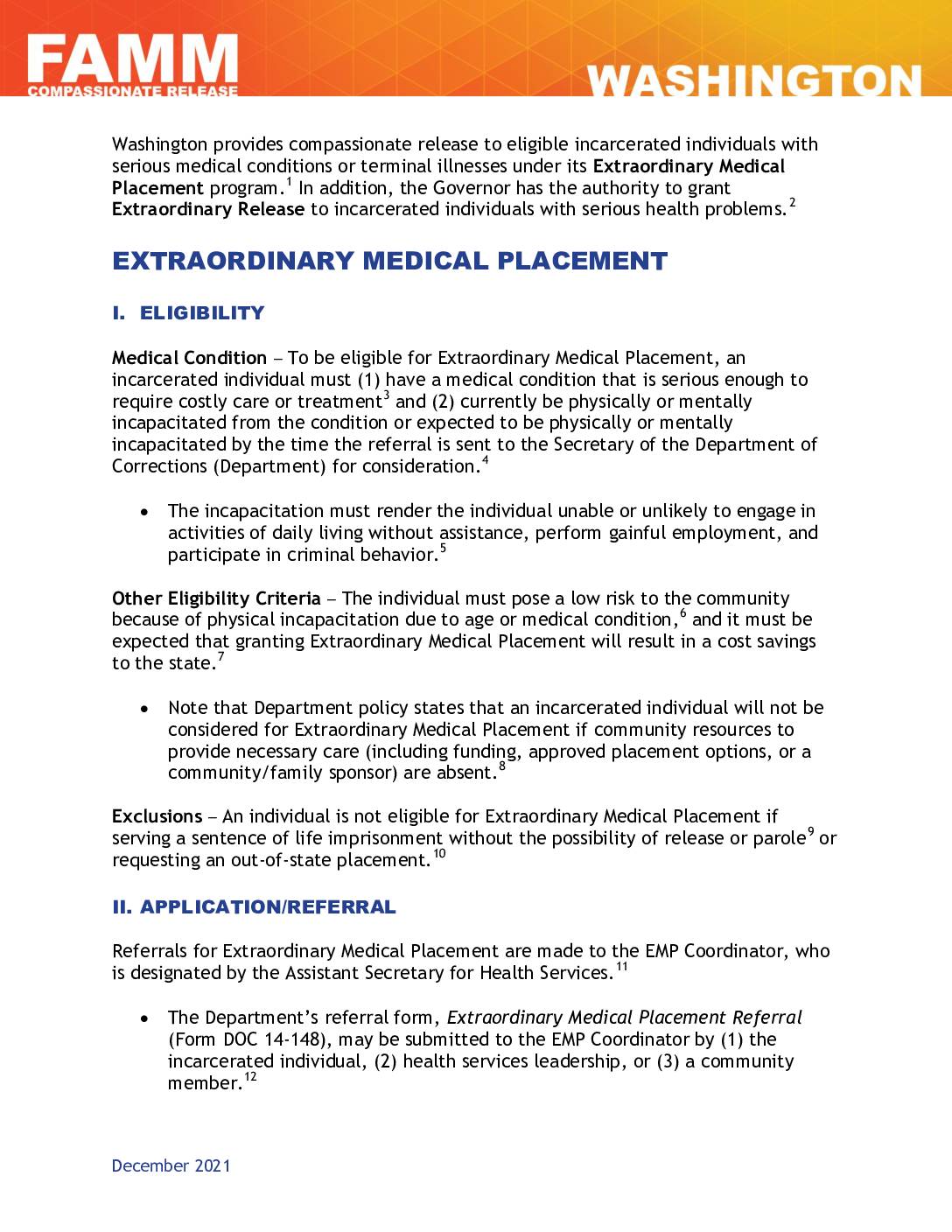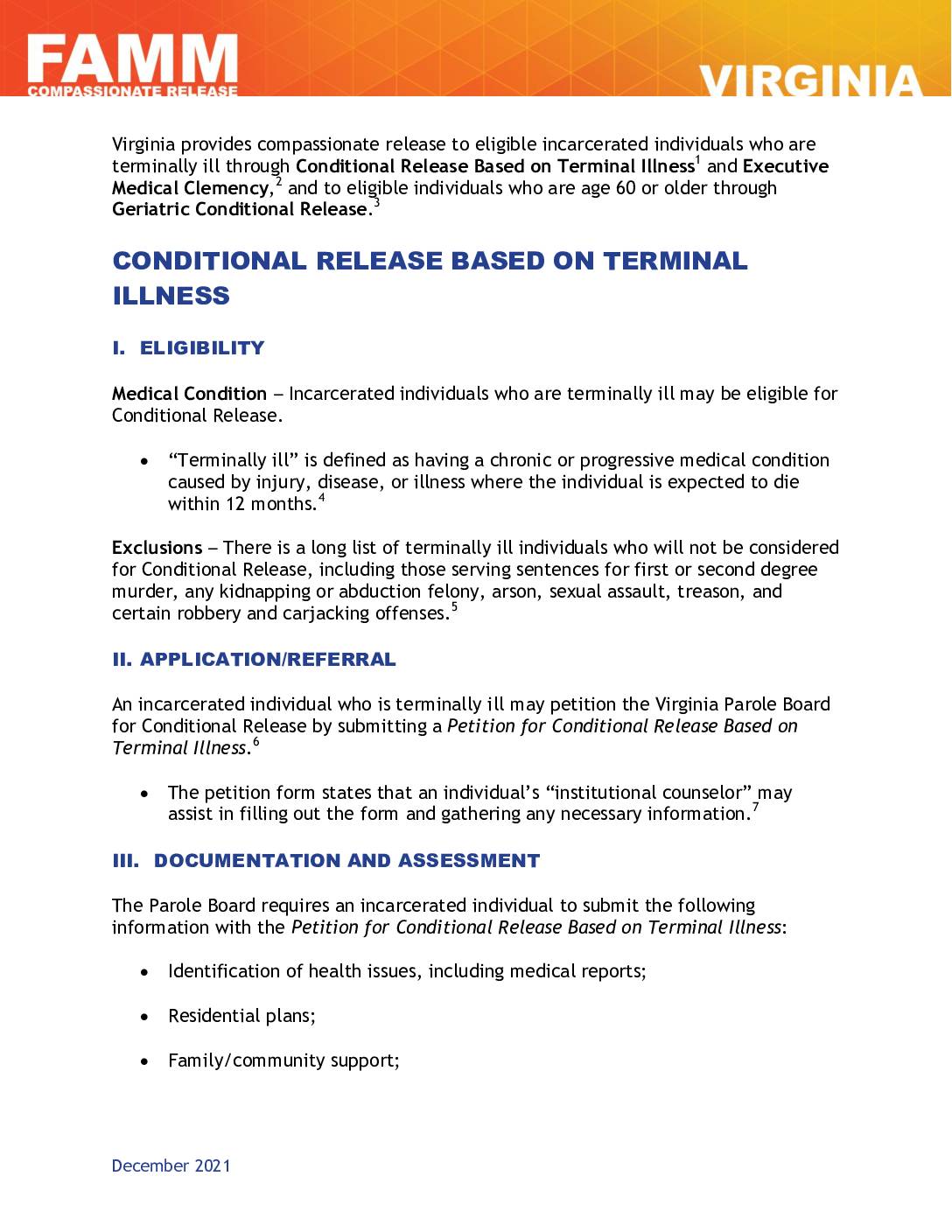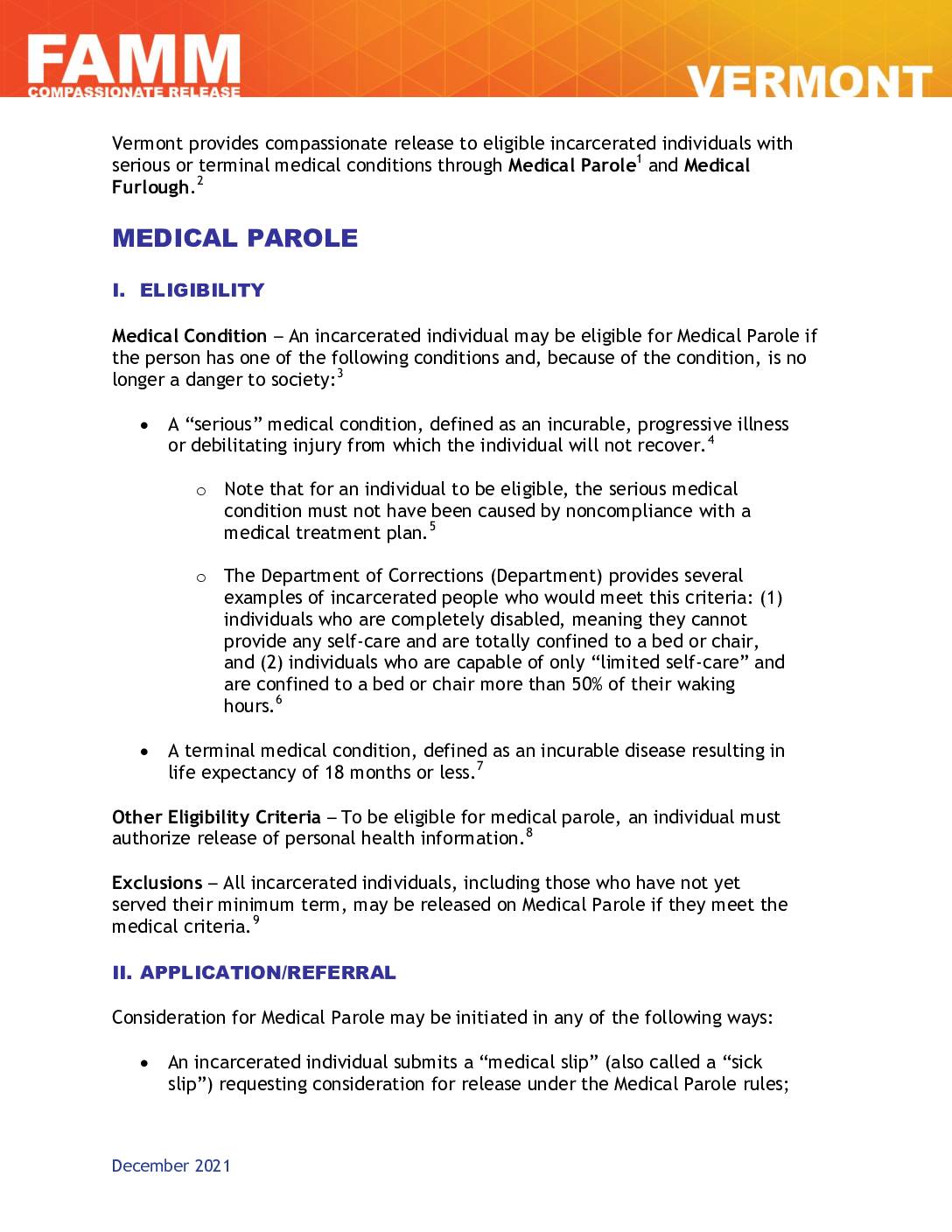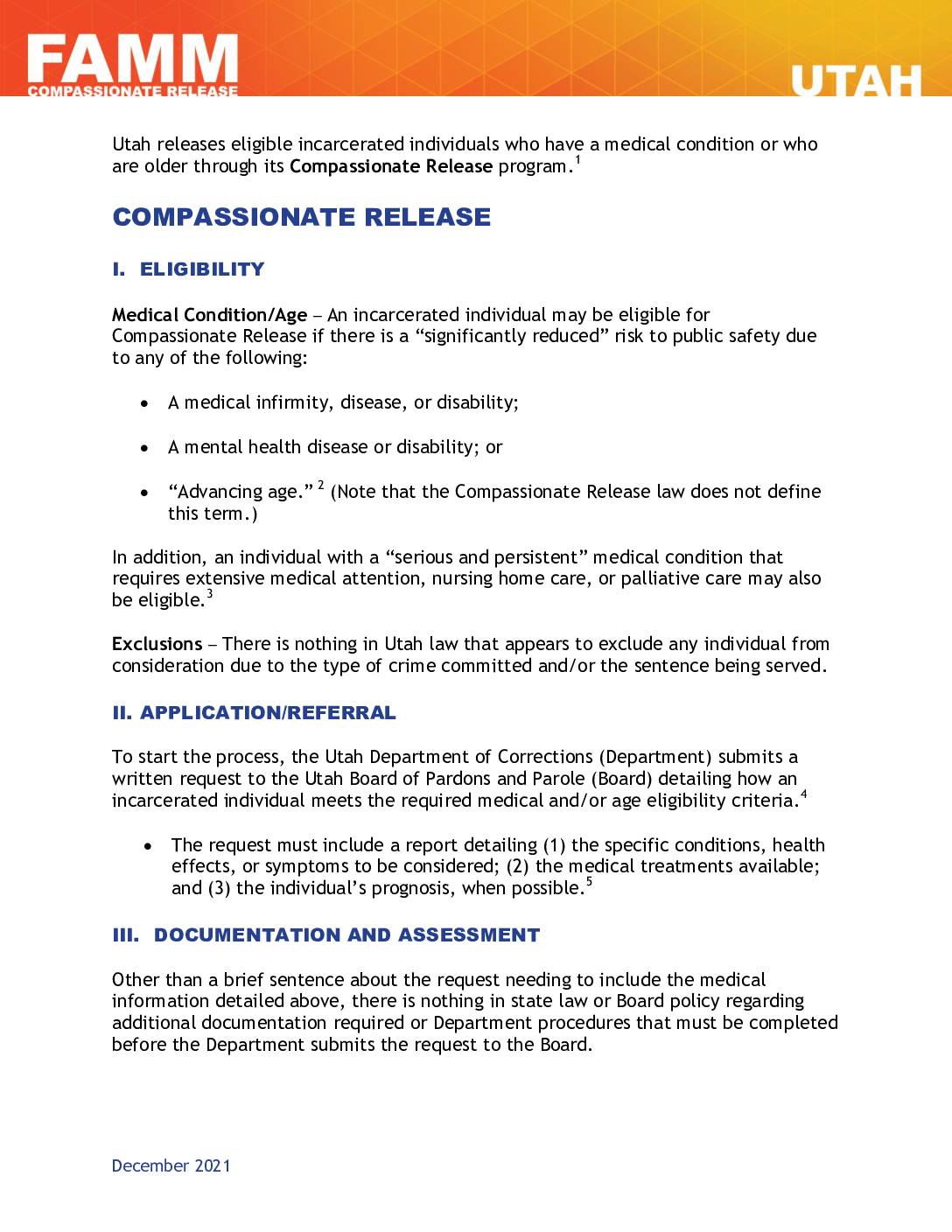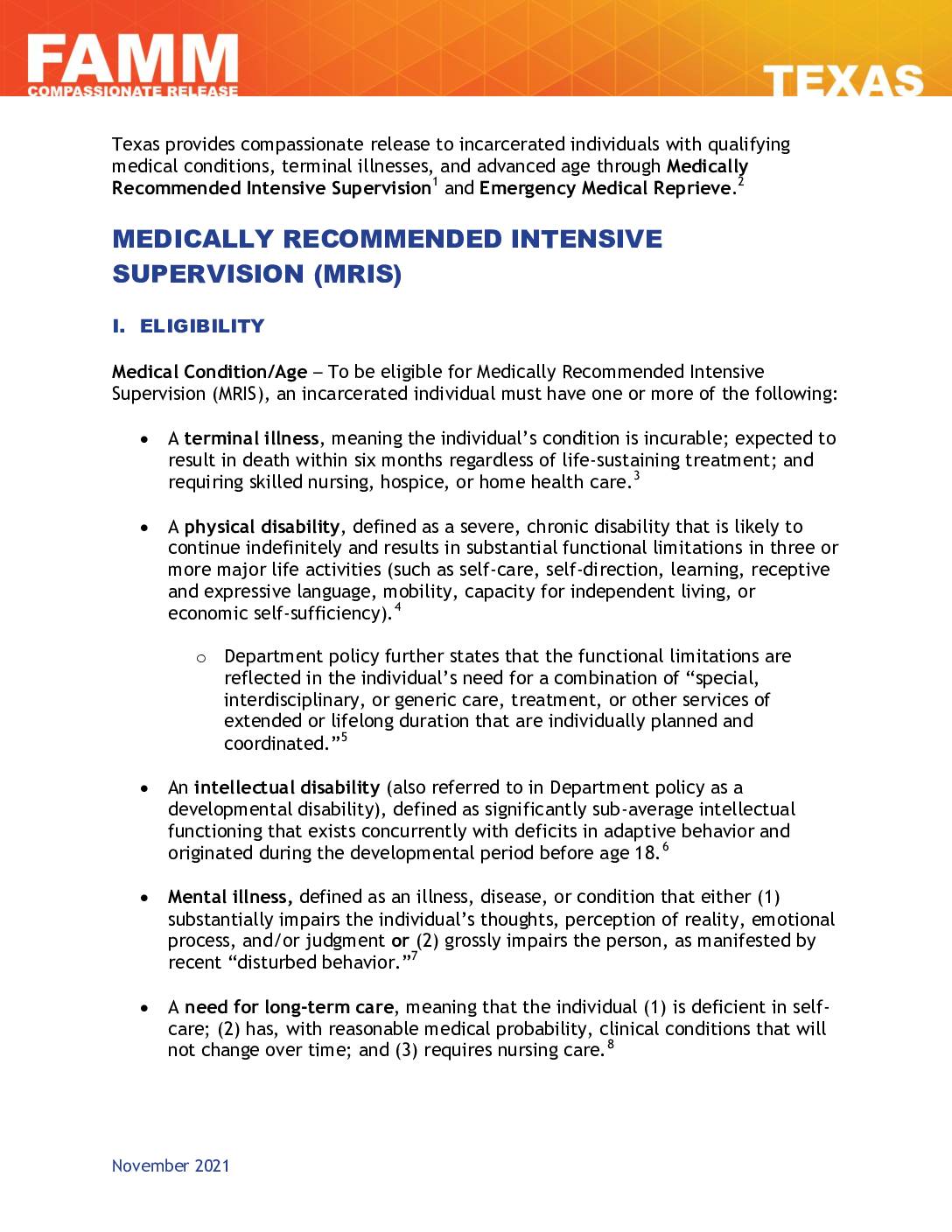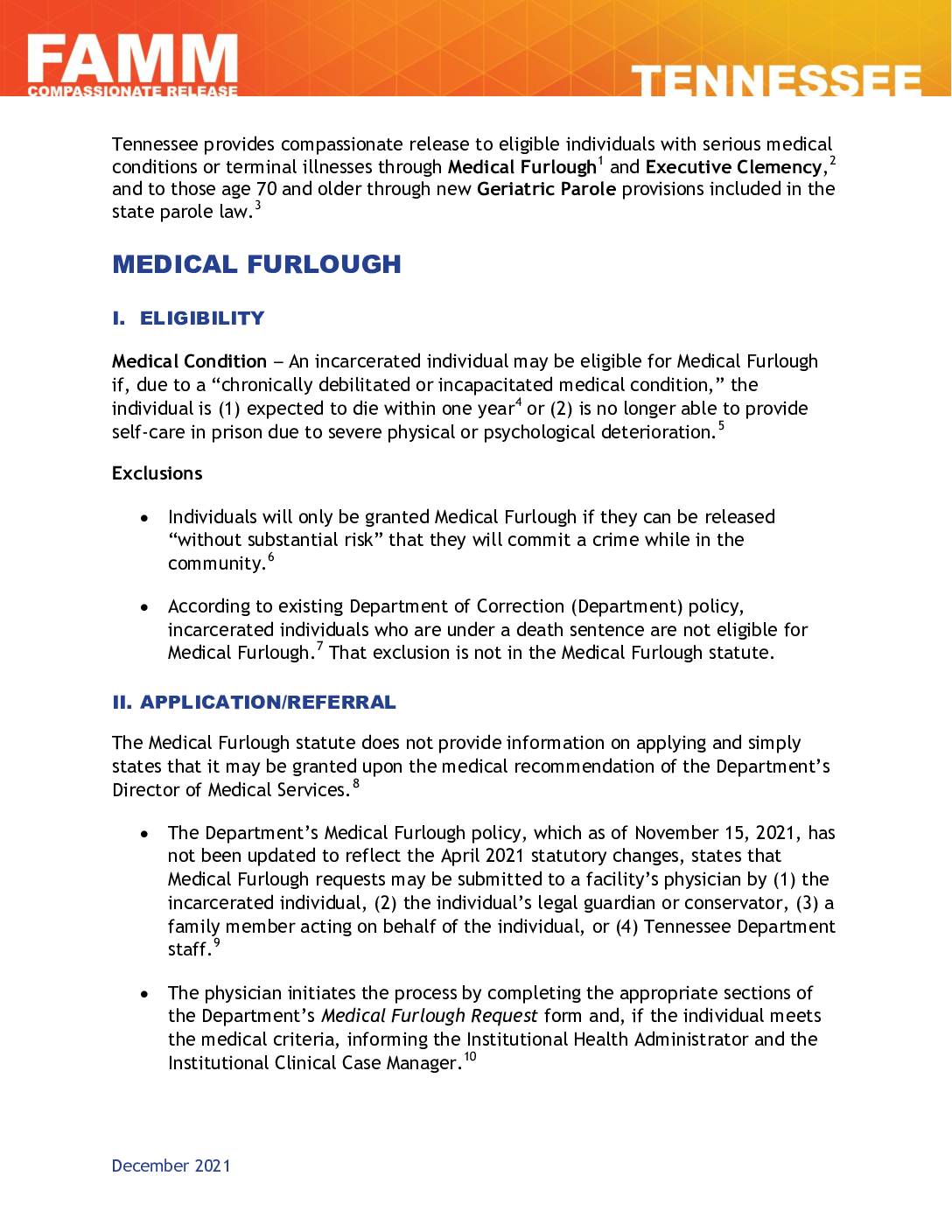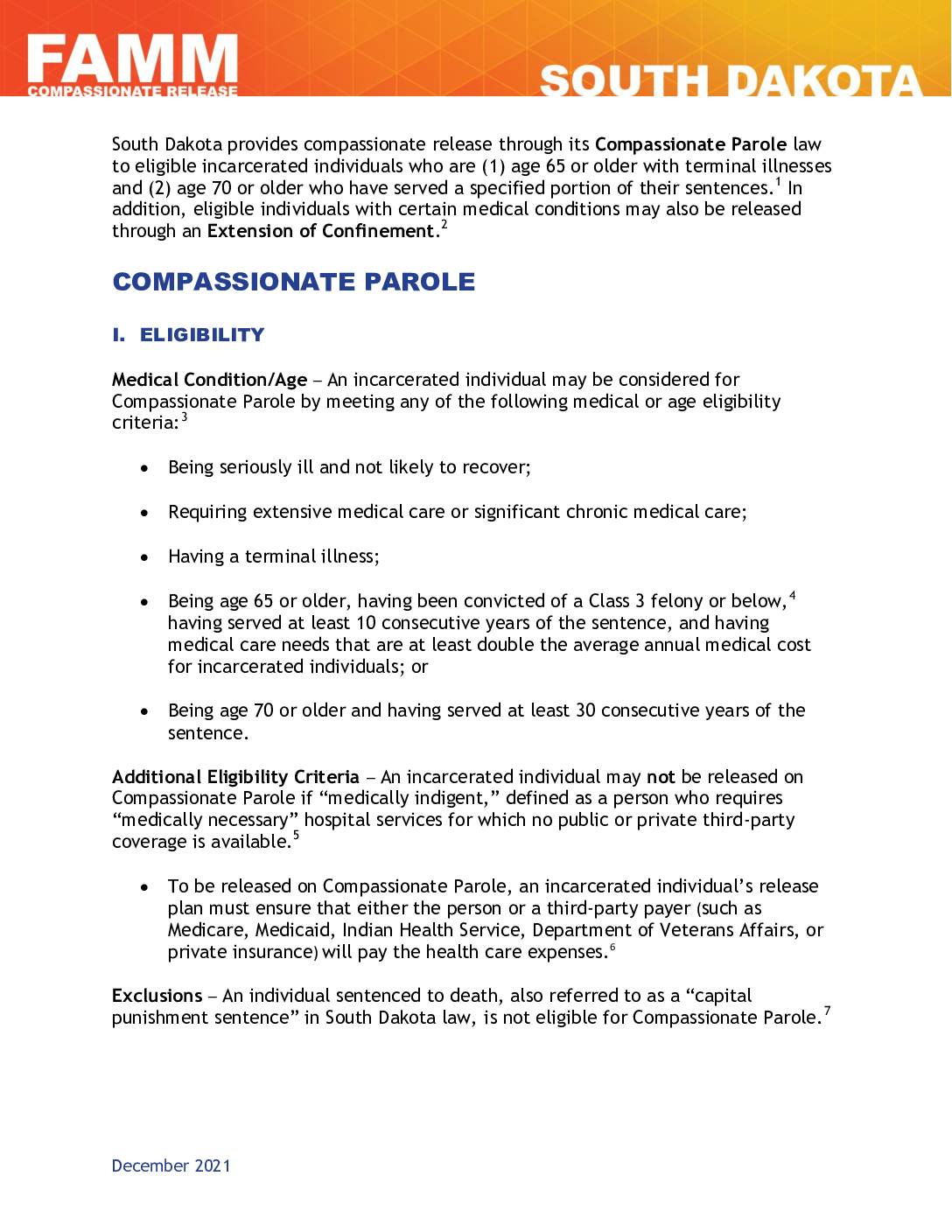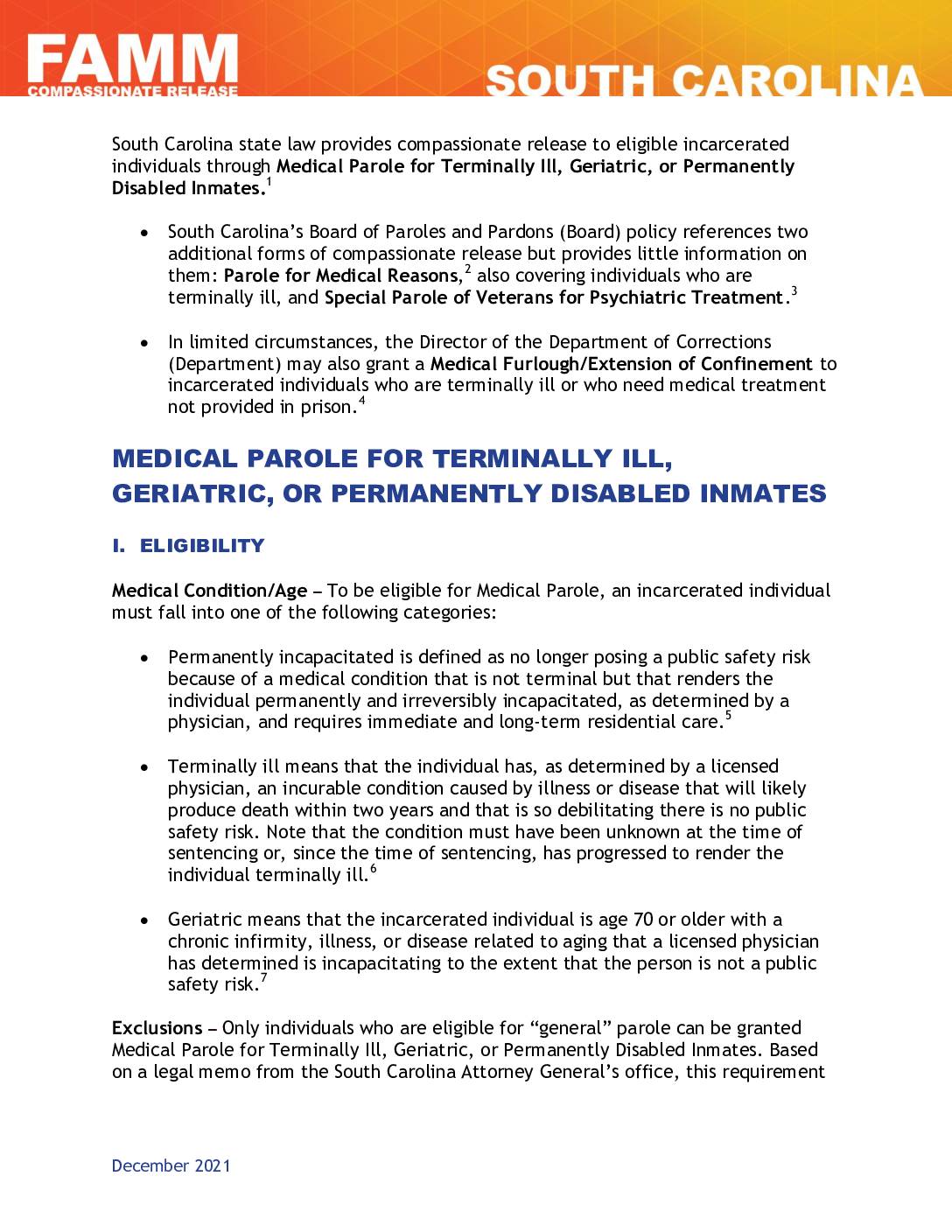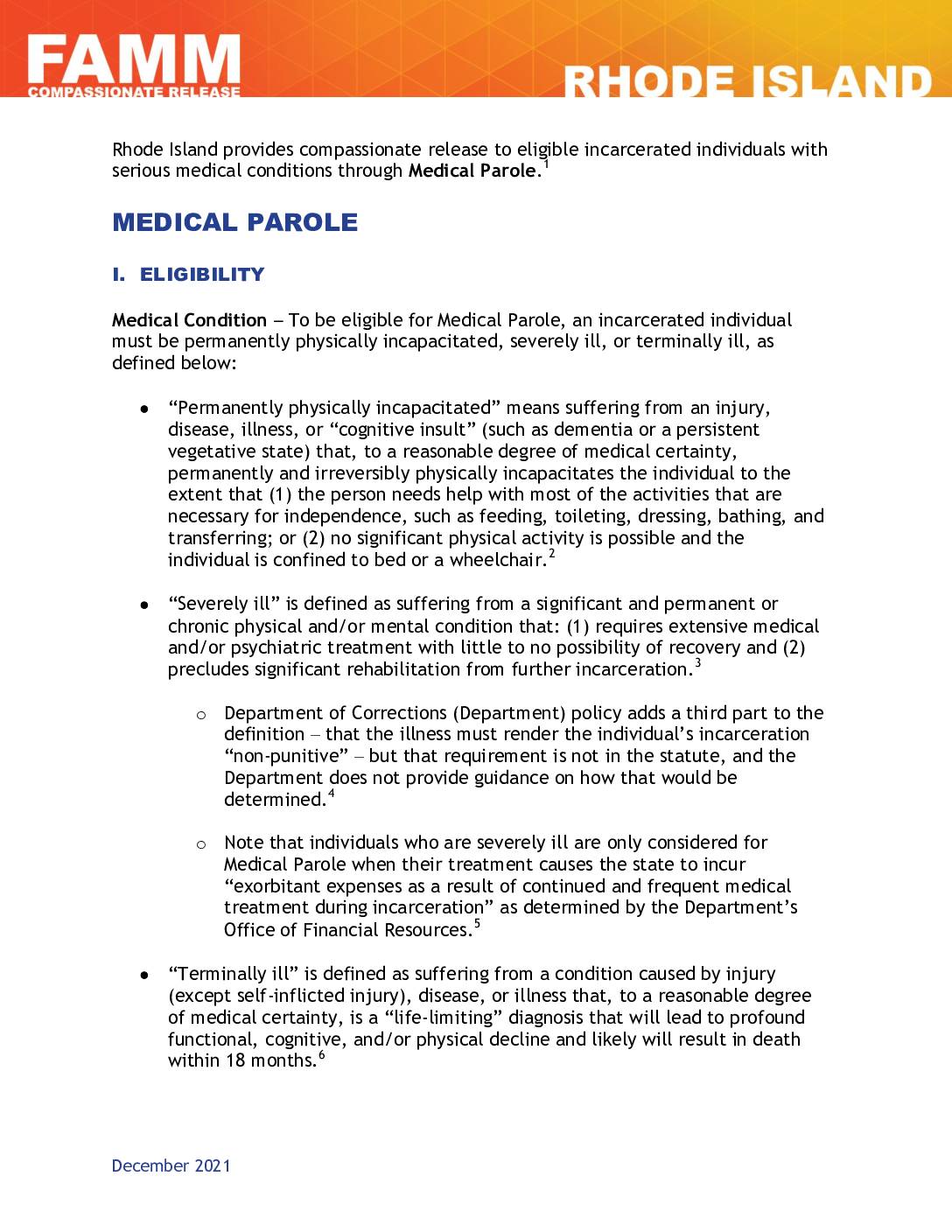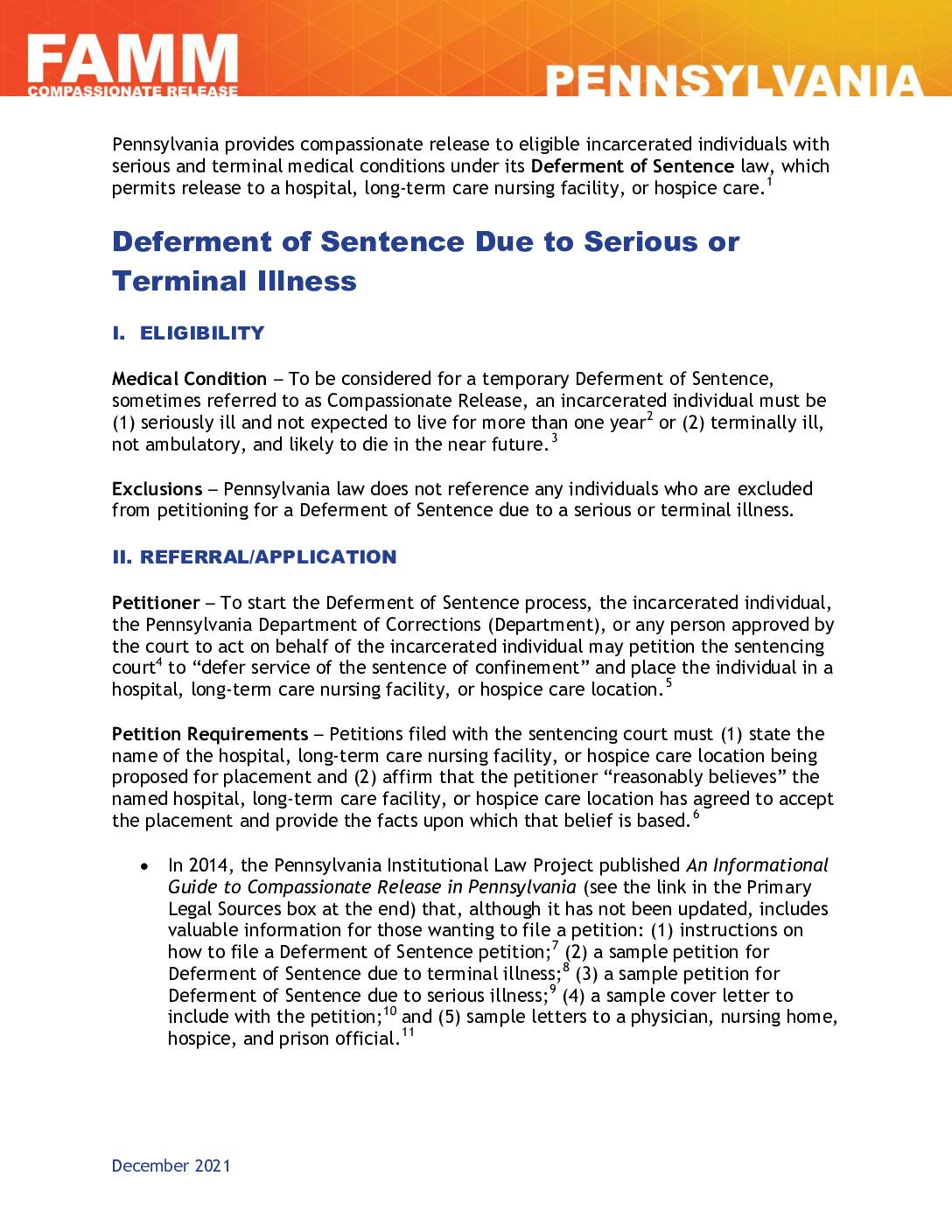PDF Everywhere and Nowhere: Compassionate Release in the States – Washington
Washington State provides compassionate release to eligible incarcerated individuals with serious medical conditions or terminal illnesses under its Extraordinary Medical Placement program. In addition, the Governor has the authority to grant Extraordinary Release to incarcerated individuals with serious health problems. This memo summarizes the regulations and requirements of these programs, including the categories of release, eligibility criteria, the decision-making process, post-decision topics, and reporting


